Hellebores Grown From Seed Can Be Very Rewarding – Simply Follow These 5 Steps
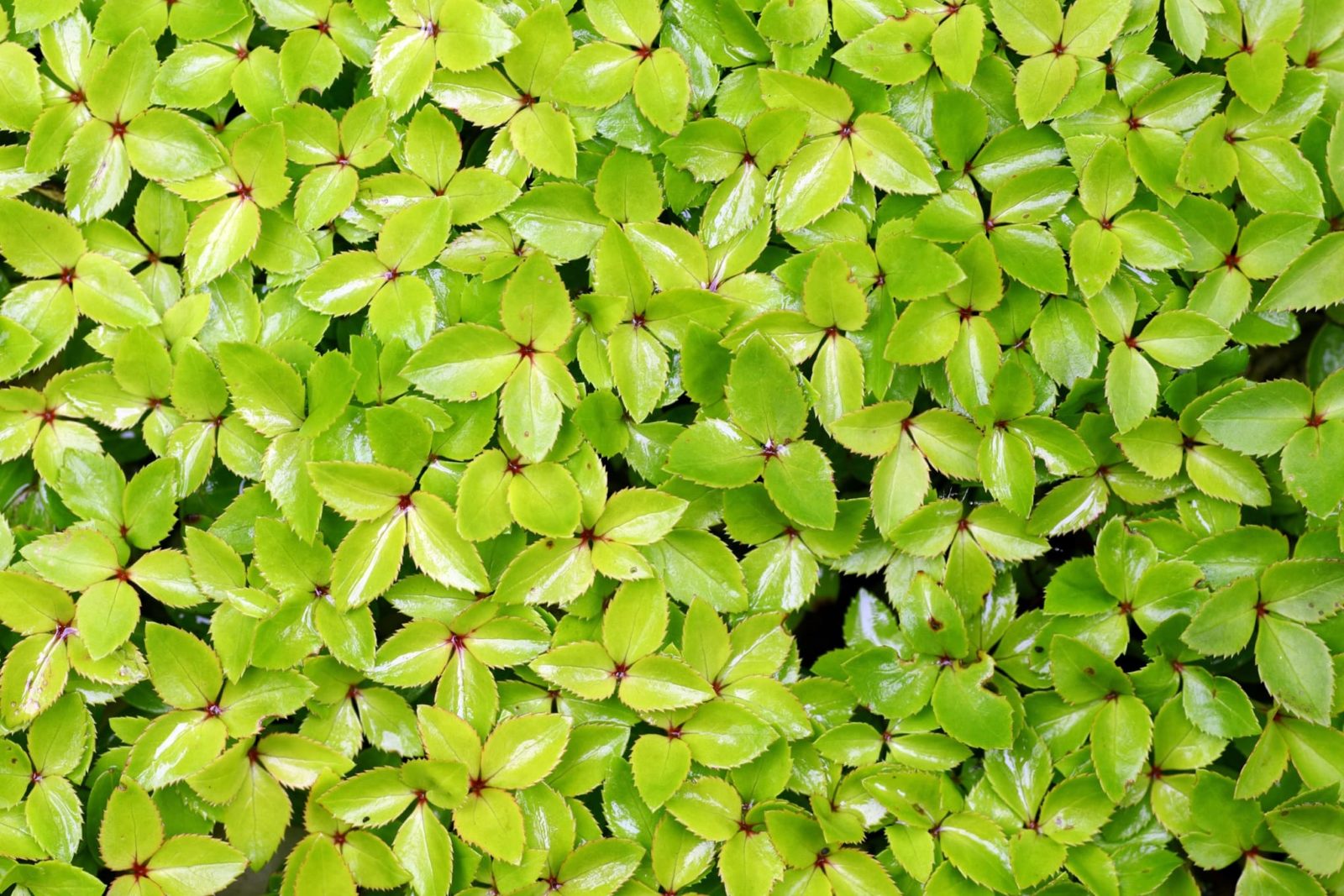
PERENNIALS > HELLEBORE > SOWING

Ed is a horticultural therapist, professional gardener and writer. Ed has a BSc in Occupational Therapy from Coventry University and a Diploma in Social and Therapeutic Horticulture (DipSTH) via Thive, the RHS and Pershore College. Ed runs a community kitchen garden in West Sussex, where he leads horticultural therapy sessions.
Reviewed By COLIN SKELLY

Colin is a Horticulturist and Horticultural Consultant with experience in a range of practical and managerial roles across heritage, commercial and public horticulture. He holds the Royal Horticultural Society’s Master of Horticulture award and has a particular interest in horticultural ecology and naturalistic planting for habitat and climate resilience.
IN THIS GUIDE
HELLEBORE GUIDES
Black & Purple Varieties
Container Growing
Propagation
Pruning
Sowing
White Varieties
Hellebores, also widely known as the ‘Christmas Rose’ because of when they flower, are a group of hardy perennial plants that can flower from winter until spring.
Growing hellebores from seed can prove lengthy and tricky, as they can be difficult to germinate and take a few years until they flower.
However, if successful growing hellebores from seed can be very rewarding.
Some hellebores self-seed freely and the seedlings can be left to grow where they are or potted up.
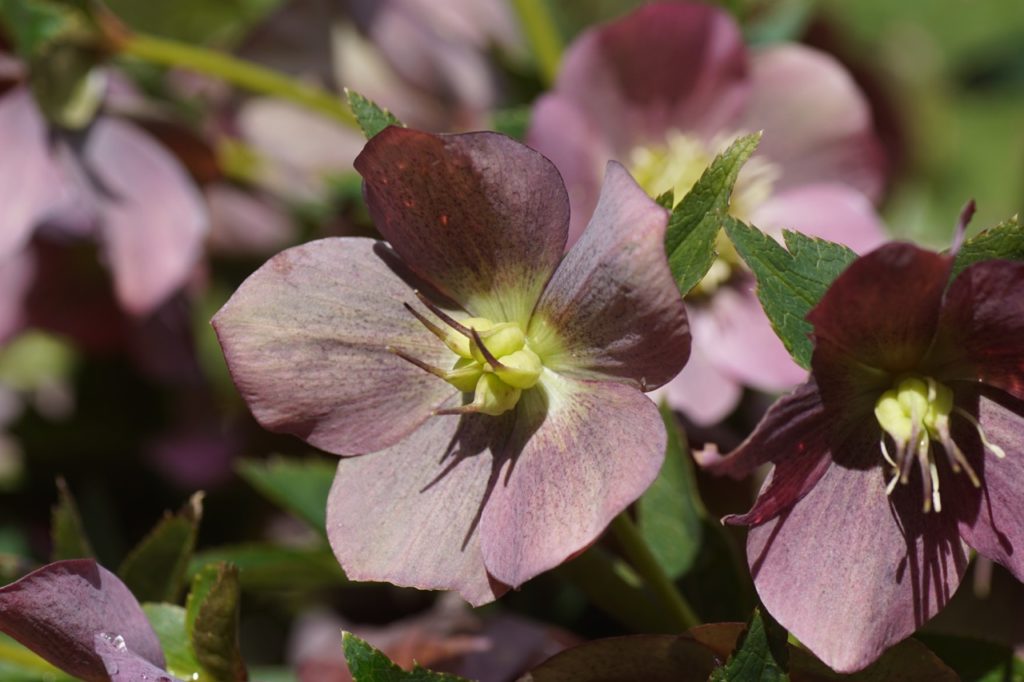
However, they may well not come true and end up looking different from the parent plants.
To grow hellebores from seed:
- Harvest seed pods or source them from your local garden centre.
- Fill shallow pots with a seed-sowing compost mix.
- Sow seeds, firming them gently into the compost.
- Prick out seedlings to ensure they aren’t competing for resources.
- Grow on undercover, providing shaded conditions out of direct sunlight.
This process is explained in detailed steps underneath.
| Difficulty | Medium |
| Equipment Required | Gloves, pots or seed tray, seed sowing compost, horticultural grit or perlite |
| When To Sow | May-July |
| When To Plant Out | Autumn to Spring |
When To Sow Hellebore
Hellebore seeds are usually best sown straight away on receiving or harvesting them and before the seeds dry out, which can lead to their dormancy.
1) Harvest Or Purchase Seeds
Hellebore seeds are rarely found available in a garden centre, but can be purchased from an online supplier or harvested from a plant that has recently bloomed.
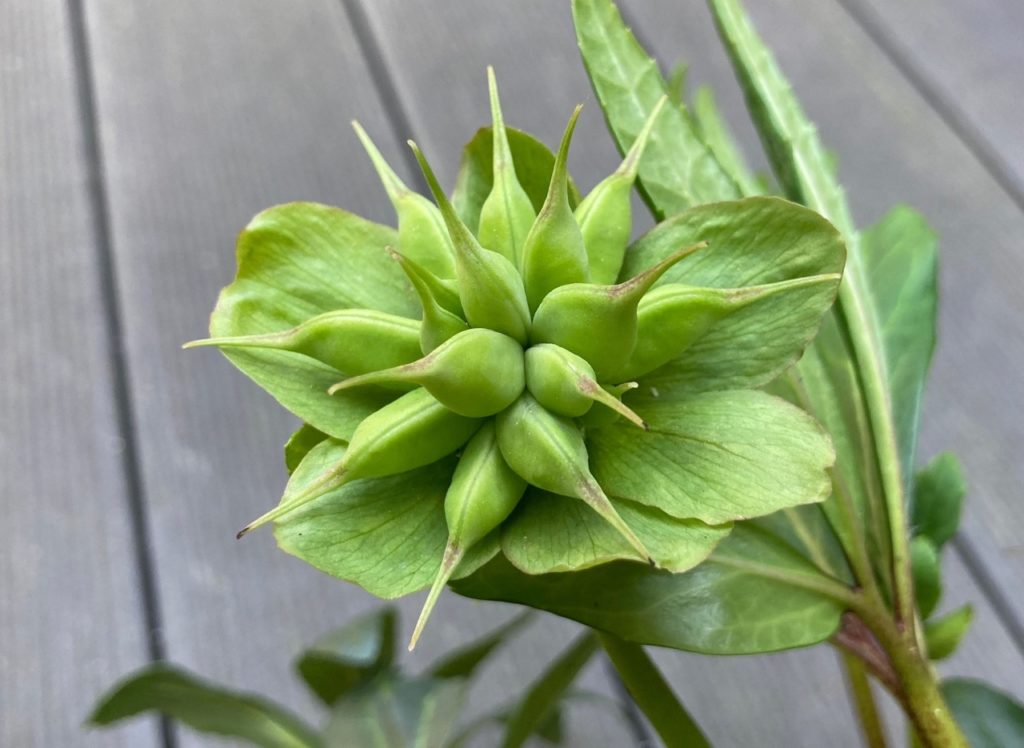
Hellebore seeds can be collected from a plant once the flowers have faded and the seed pods have turned brown and are beginning to split, usually around the month of May.
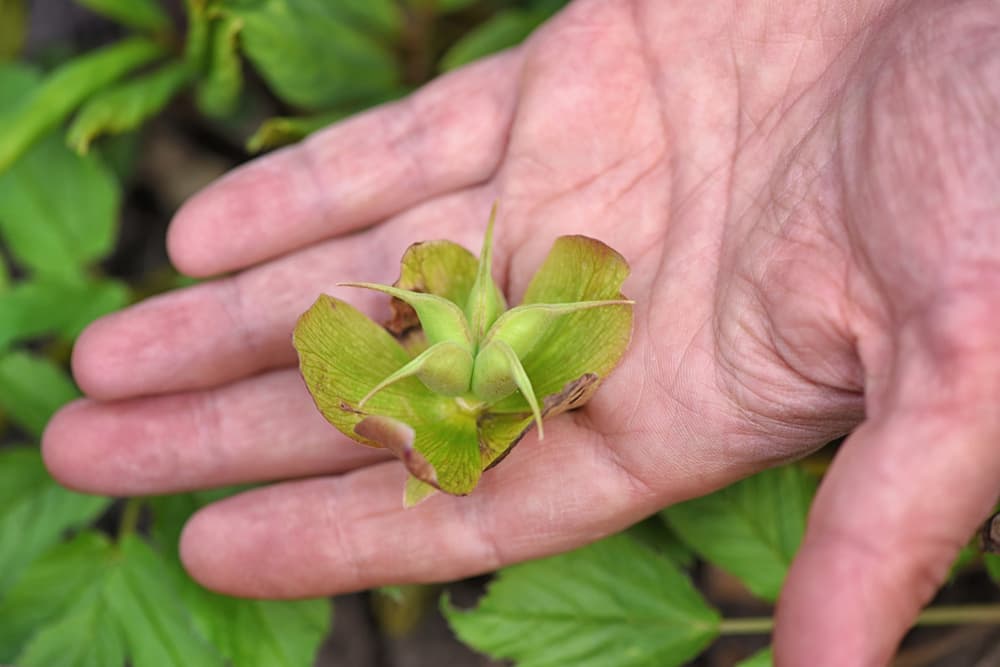
Remove the spent flower heads or seed pods from the plant and separate the small glossy black seeds which can be kept in a paper envelope until sowing.
2) Fill Pots With Compost
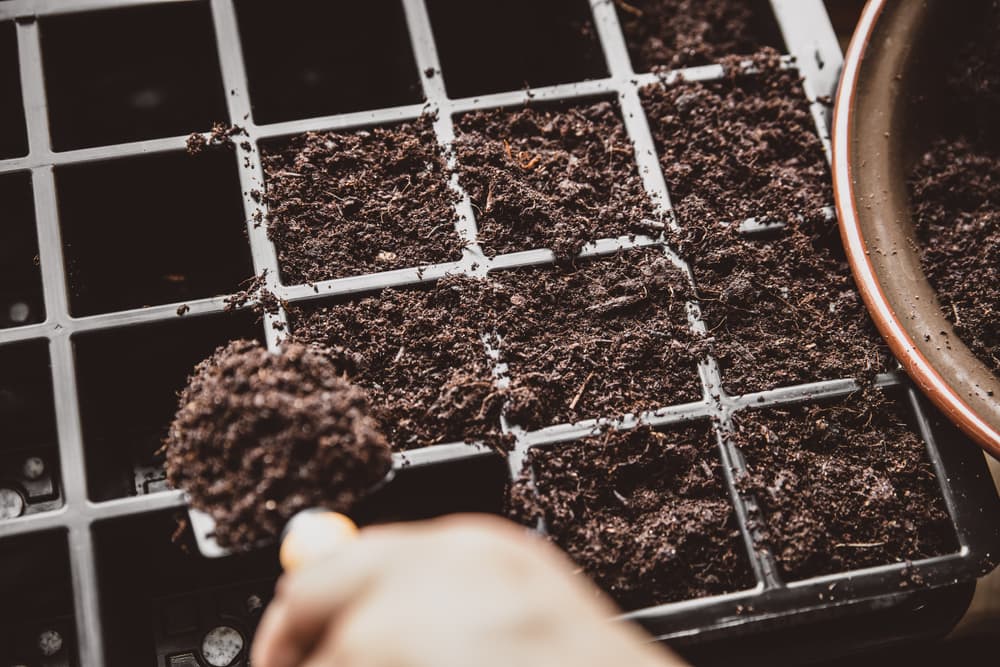
Fill a small pot, or seed or module tray with a seed sowing compost mix and tamp down to provide a smooth surface to scatter the seeds over.
3) Sow Seeds
Sow the hellebore seeds thinly on top of the compost and firm the seeds gently down ensuring good soil contact.
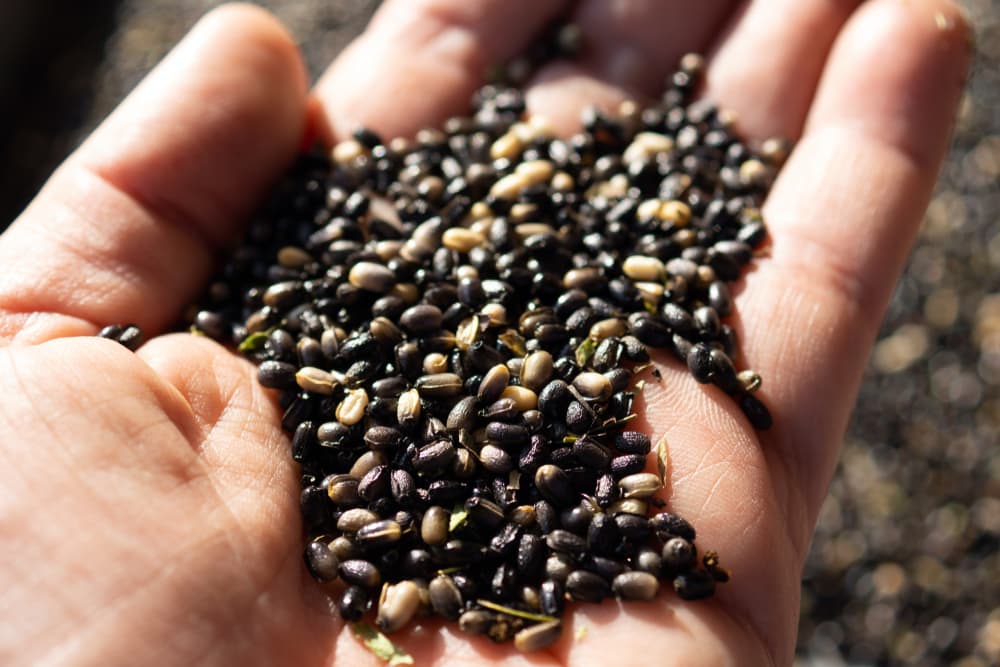
Cover the seeds with a thin layer of perlite or horticultural grit and water gently from above being careful not to disperse the seed.
Label clearly and place the pot or tray outdoors in a sheltered spot out of direct sunlight and water when required to keep moist.
4) Prick Out Seedlings
Hellebore seeds can take a long time to germinate and require some time exposed to cold temperatures before doing so.
Once the seeds have germinated, typically when the temperatures drop around November to December, place them in an unheated greenhouse or cold frame to grow on.
“Essentially, this replicates the conditions in which they have evolved, as germinating before or during summer would result in high rates of loss due to drought,” explains Master Horticulturist Colin Skelly.
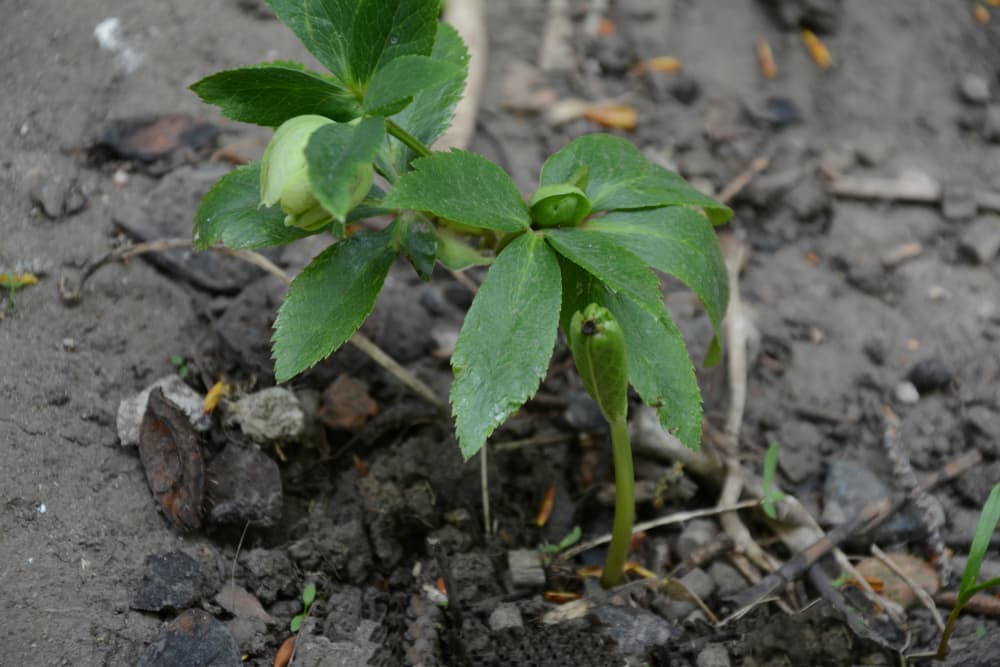
“As temperatures drop into autumn and wetter weather resumes, the seeds are primed to emerge.”
Once the seedlings are large enough to handle and display a pair of fully opened leaves, they are really for pricking out.
Carefully prick out the seedlings, handling the leaves only, and pot on individually into small pots filled with a peat-free multi-purpose compost with some horticultural grit added.
5) Grow On
Grow the seedlings on in an unheated greenhouse or cold frame and out of direct sunlight, keeping the soil moist at all times.
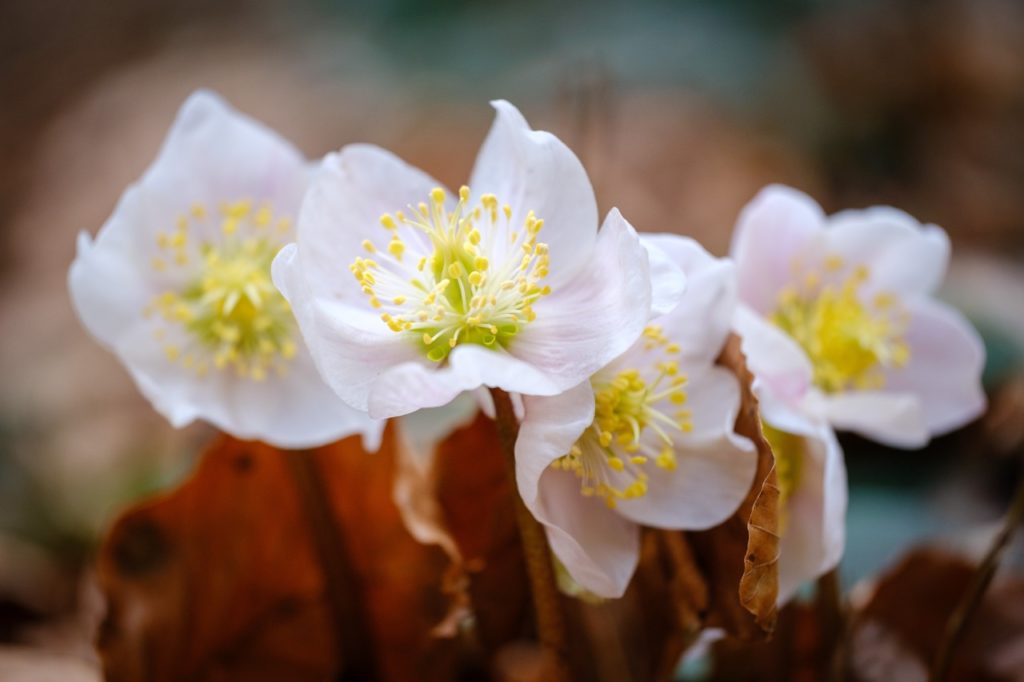
Pot on the young hellebores a size up when they outgrow their pots and continue to grow the plants on until they are large enough to be planted out into a border or a final container or pot.
